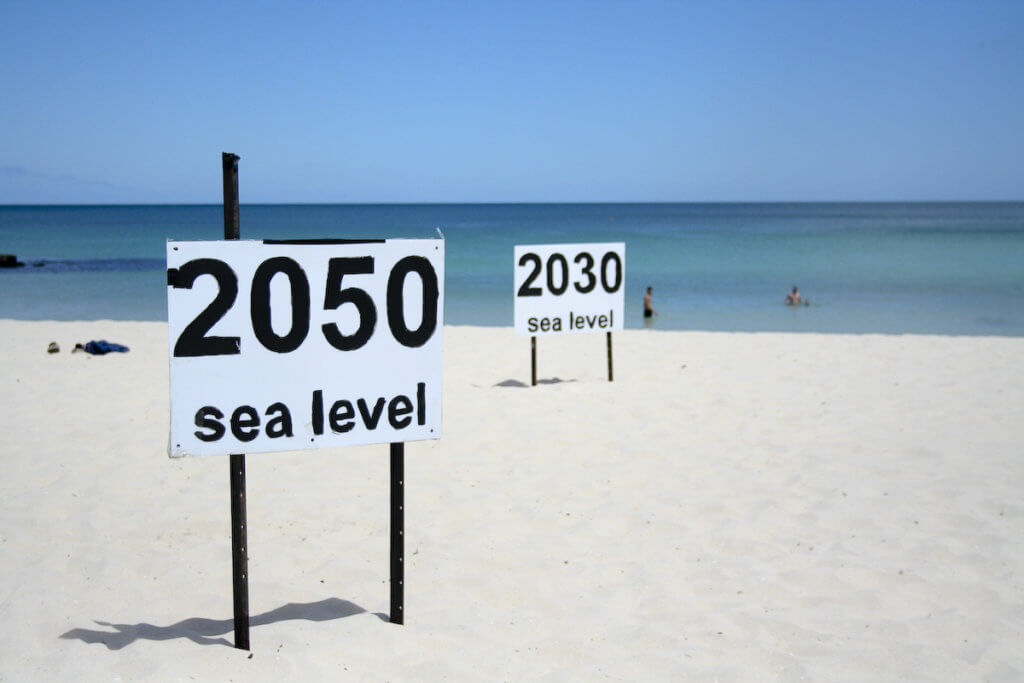Geoengineering Is Something No One Wants To See, But….

There’s unanimous support for planting more trees, and virtually everyone would like to see fewer greenhouse gas emissions from power plants. However, there is very little support (right now, at least), for dumping chemicals into our atmosphere to reflect some of the sun’s energy back into space, or changing the chemistry of our oceans such that they absorb more CO2, since we’re rightfully terrified of the unintended consequences–and we’re wise enough to know that, once we embark on that course, it will hard to put the toothpaste back into the tube.
Having said all this, we are fortunate that there is still a cadre of top scientists that continues to study this subject, and explore all options, new and old. Why? It’s possible that we’ll be left with little choice. The Greenland ice sheet is melting, which, by the time it’s complete, will cause the global sea levels to rise 20 feet. Losing the ice on Antarctica would add another 200 feet. This means that for a period of centuries, the shorelines will be receding; what is coastal property in year X will be under water a few decades later. What’s more, the oceans will be ruined from acidification; massive droughts will cause food and water shortages; wildfires will ravage our woodlands; people in hotter climates will be dropping like flies.
Given these hellish scenarios, each of which is quite possible, we should all be glad that at least some of our top minds are working on solutions, even if no one wants to see them implemented. That’s because necessity can put all of us into situations we’d much rather avoid. Do I shoot strangers indiscriminately? No. Would I shoot an armed stranger who broke into my house with the clear intent to harm my family and me? Happily.

Craig,
The question will always boil down to cost effectiveness and maximum potential lifestyle.
Every year that we don’t focus on this issue, the maximum potential lifestyle for the world does and will erode slightly… but only slightly.
To change the trajectory, there are three options: mitigation, accommodation, and geoengineering.
There are many mitigation strategies that we agree will clearly pass the “cost effectiveness” test – insofar that investing in them will result in a net lower cost / net greater potential lifestyle for the planet.. Wind power, solar power, geothermal power, efficiency upgrades, etc… all easily pass that test, while electric cars, algae products, ocean current recovery, orbital solar energy and high altitude wind energy, etc.. all clearly don’t.
But there has been nothing (other than aforestation) in the geoengineering world that comes within orders of magnitude of being cost effective. I would like to see a cost effectiveness study of intentionally cloud-covering the arctic with artificial cloud generation, as that might serve to slow or fully offset sea level rise… but the costs of such a proposal would be in the trillions, and even for that it would likely be cheaper just to adjust on the local level by seawalls, dredging and dikes.
We cannot fantasize that we will prevent change, we can seek to slow the change down to a rate we can accommodate it for minimum loss of lifestyle, and then accommodate it.
Geoengineering is largely for dreamers who believe that we can freeze time in a bottle.
Some physics lab like CERN may end up doing such a thing on the atomic scale (God only knows how… but it might happen), but for the macro-scale, including the global climate scale… I’m afraid the arrow of time will continue moving forward..
Whether the geoengineerists are brilliant enough might be a matter of individual assessment, but their stated goals are the dreams of very foolish people.
Glenn,
Did I read you correctly ? Are you really advocating Electric vehicles are “clearly’ not viable and adoption would not assist the environment or people lifestyles ?
Or was that just a misprint ?